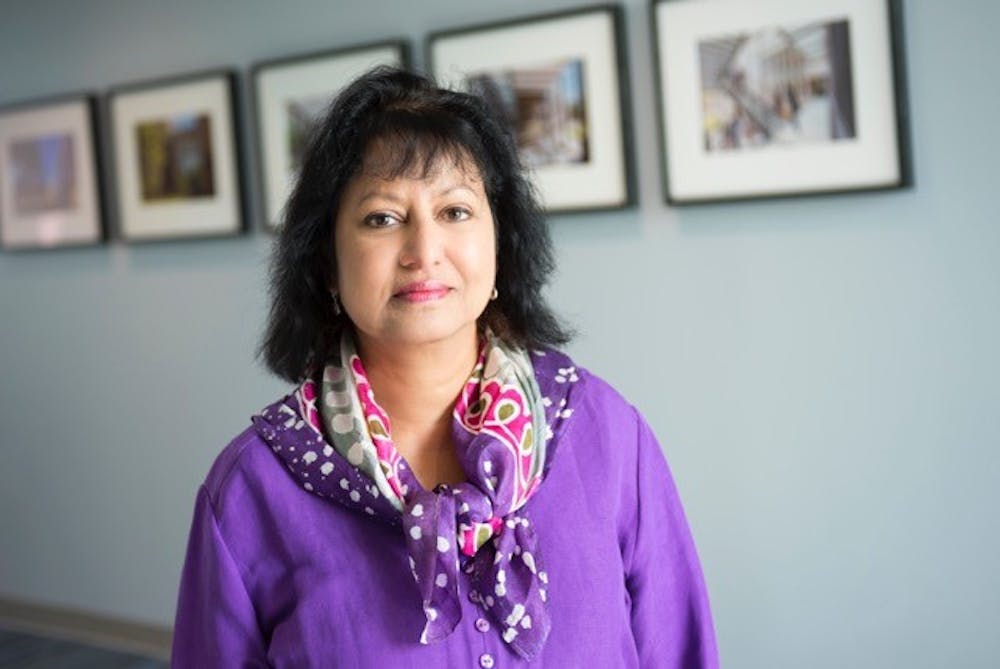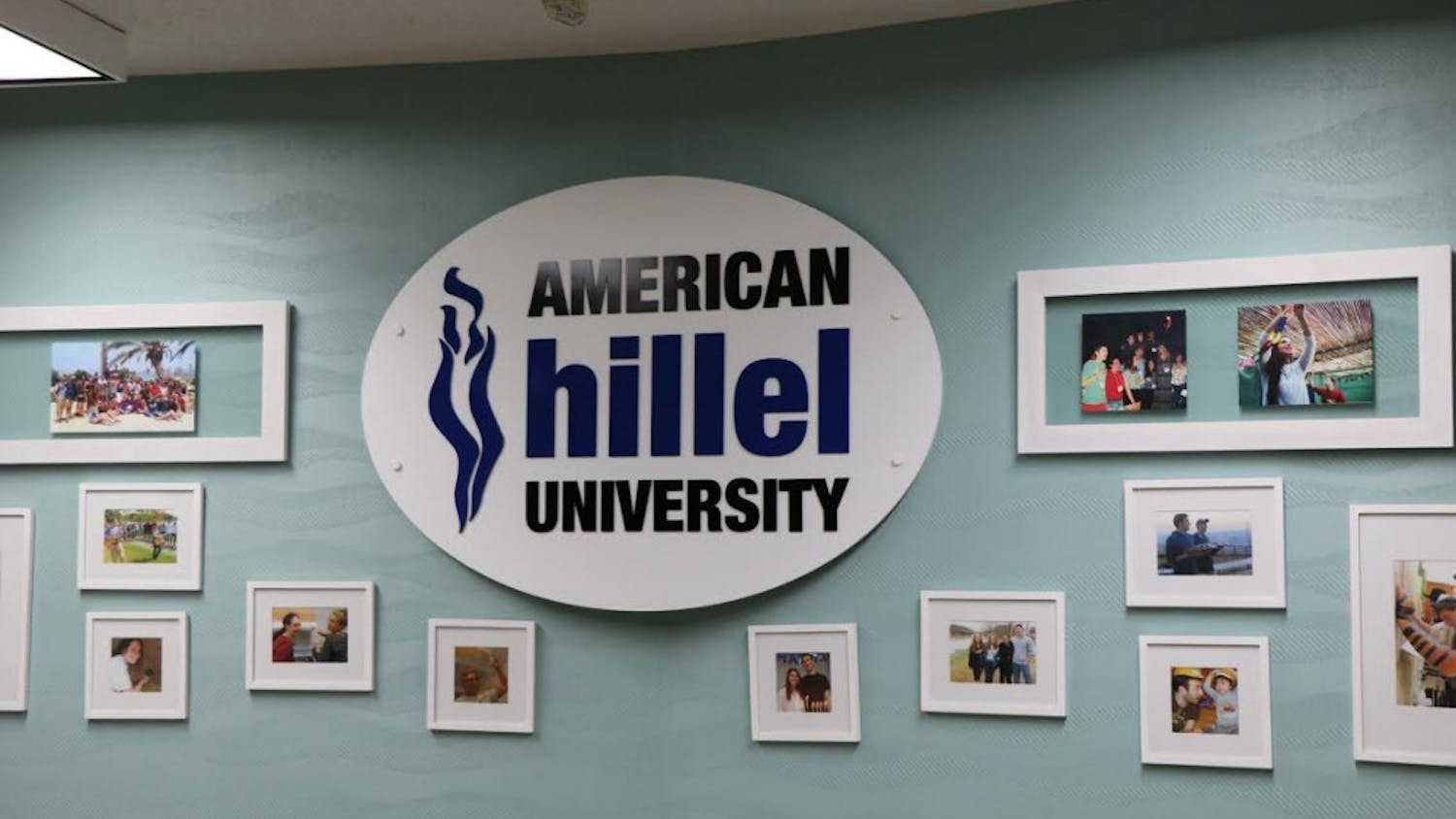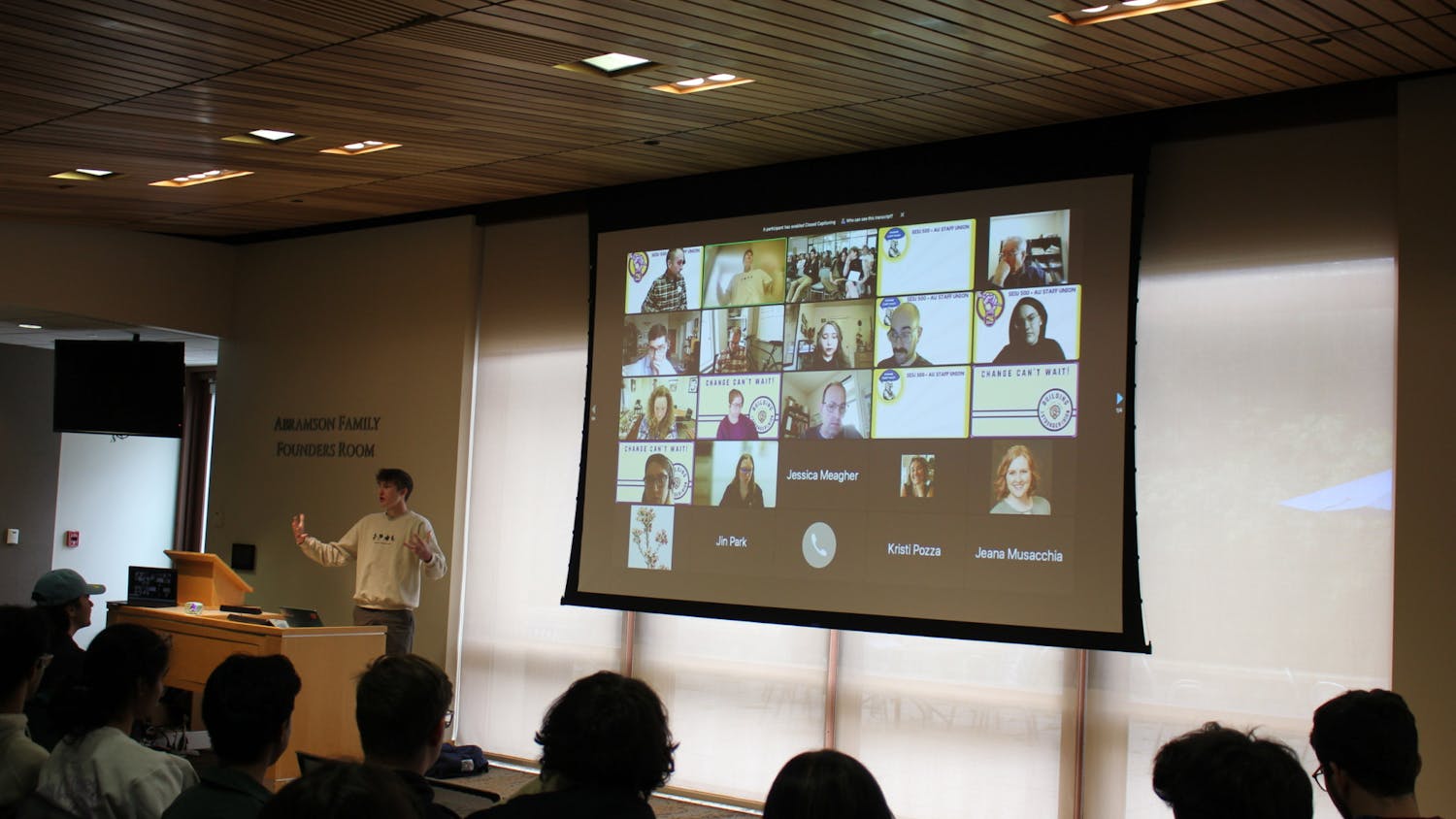Asma Afsaruddin, a professor at Indiana University-Bloomington, spoke to students Feb. 14 about gender roles in the Quran. Passages that seem exclusive can be viewed otherwise, she said, and students should think about feminism in it’s plural, as “Islamic feminisms.”
“The Quran was understood to undermine the divide between man and woman,” Afsaruddin said.
Afsaruddin teaches in the Department of Near Eastern Languages and Cultures at IU, researching pre-modern Islamic political thought, Islam and religious pluralism and gender roles, among other subjects.
AU professor Sara Omar, who studies gender and sexuality in Islam, and Lauren Weis, the director of the Department of Philosophy and Religion within the Women’s Gender and Sexuality Studies program, accompanied Afsaruddin in the discussion. Omar gave a presentation titled “How about Zaynab?” alluding to an Arabian historical figure who was part of the nobility in Mecca, considered the holiest of Muslim cities.
She asked the audience how they interpreted passage 33:36 of the Quran, which touches on the roles of men and women in their submission to God, stating that who is interpreting these texts makes a crucial difference in the outcome of those readings.
“They bring in their biases, they bring in what they know, their experiences, their ideological beliefs,” Omar said. “They bring in anything and everything into the text. The text does not scream out a specific meaning.”
Omar told the story of Zaynab, the eldest daughter of the Islamic prophet Muhammad, when she initially rejected a marriage proposal.
“The point is, in these discussions, what you hear and see is Zaynab’s initial resistance, and then pious agreement,” Omar said. “She is an extremely pious woman because she obeyed, because she agreed to something she did not want.”
Omar said this interpretation, or “exegesis,” silences Zaynab. Eventually, Omar said, Zaynab’s marriage failed.
“You end up having a selective way of looking at things. What did Zaynab have to say?” Omar said. “We are told how men would think she would react.”
Afsaruddin said these interpretations are situated in a specific lens that allow certain interpretations to be made. She said that viewing these masculinist verses in their own context allows feminist interpretations to argue that these interpretations undermine the themes of justice and gender equality in the Quran.
Both Afsaruddin and Omar spoke about Muslim feminists and their roles in interpreting the Quran, and how the gender roles within the text function.
“What Muslim feminists have done is to say that, ‘I’m going to cast out on the Hadid and focus on the Quran,’” Omar said. “They look at different approaches rather than looking at the Quran holistically. There’s more to it than that. How about the rest of the Quran that would counter one single word or one single verse?”
Afsaruddin told the audience to consider of the Quran with an open mind, refusing to restrict each verse with a single interpretation.
“Reading the same verses through an egalitarian lens allows for greater interpretative possibilities to occur,” Afsaruddin said.





